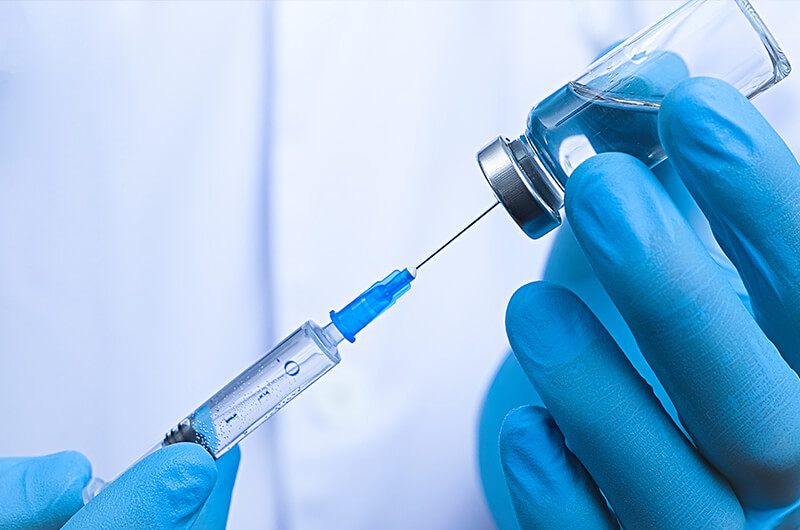

One-stop in-house personalized therapy facility.
We value your time and convenience.
Assisting you in achieving anxiety-free recovery.
For greater and more efficient care for patients
Helps the patients receive invasive pain procedures without needing hospitalization.

Minimally invasive surgical procedures, such as lumbar epidural steroid injections, can alleviate lumbar back pain, enabling patients to heal faster, protect inflamed nerve roots and restore mobility and improve daily function. If you are looking for a robust and reliable treatment option for chronic pain serving the Metro Detroit area in Clinton Township, St. Clair Shores, MI, epidural steroid injections for back pain can be your safest choice, but many other interventional options exist if this diagnostic block fails to improve your condition.
At Michigan Neurology Associates & Pain Consultants, we deliver state-of-the-art pain management and recovery in the Metro Detroit area in Clinton Township, St. Clair Shores, MI. With a demonstrated experience all types of spinal pain management and other integrated pain relieving therapies, we ensure secure, efficient, and well-sequenced procedures with little downtime! Reserve a time slot between Monday to Friday and get a patient-focused, smooth treatment!

Specialists use lumbar epidural steroid injections (ESIs) to treat certain chronic spine pain via this and other minimally-invasive procedures. The process involves the infusion of an anti-inflammatory drug into the epidural area in your lower back - surrounding your spinal nerves via the use of x-ray guidance. Lumbar ESIs is a common and broad spectrum medical treatment for relieving pain from herniated discs and spinal stenosis when nerve root inflammation is involved.
The primary purpose of a low back pain epidural steroid injection is to cure soreness produced by irritation and swelling of the spinal nerves in the lower back caused by specific disorders or injuries. A lumbar epidural steroid injection can heal your lumbar pain while also enhancing flexibility and endurance.
Doctors offer Epidural Steroid Injections only if other less invasive therapies, such as medication and physical therapy, have failed to provide considerable pain relief.
Epidural steroid injections can help with underlying spine conditions-
If you suffer from severe, difficult-to-treat pain in your lower back caused by irritated nerve roots, a lumbar epidural steroid injection may provide rapid relief. Constricted nerve passageways frequently cause radiating pain emanating from the spine and going into your arms or legs. Such restriction can promote spinal nerve inflammation, causing further pain. However, back discomfort from painful muscles, tissue contusion, muscle spasms or tears, and other causes may not result in optimal results from an epidural steroid injection which specifically targets these irritated and swollen nerves. These other conditions can be addressed in other ways and through the selection of other specialized procedures.
Epidural steroid injection is an outpatient treatment that requires 30 minutes. The session does not generally require anesthesia, enabling an awake patient to provide real-time feedback to the practitioner throughout the process. The doctor always administers local anesthetic to numb the affected area.
The physician inserts a needle between the vertebrae using guidance by x-ray fluoroscopy to identify the epidural area. A Radiograph allows the clinician to examine the needle on the x-ray screen in real-time, ensuring that the needle tip is driven to the appropriate area.
It is normal to feel some minor residual soreness or hypersensitivity after the treatment. Although it is possible to get great pain alleviation immediately following the procedure, the effects are generally visible after a 5-7 day period. The level of pain alleviation after an epidural steroid injection differs from patient to patient. Most insurance carriers require a 50-60% improvement to approve another one in the future. A follow-up telehealth appointment is necessary to record the effectiveness of your recovery and to design a further course of treatment.
We provide patient-specific care at Michigan Neurology Associates & Pain Consultants to respond to your needs quickly. Our board-certified experts, rehabilitation doctors, therapeutic pain management specialists, and advanced clinical providers provide full-service solutions that simplify pain relief with minimal downtime. Patients receive nothing less from our comprehensive pain program at Michigan Neurology Associates!
Our team offers the finest care, all-around treatment procedures, and puts your health first!
Digital check-ins, advanced lab services, and detailed screenings enable minimal wait times and smooth processing.
Our skilled team assists you with lab tests and timely evaluation to ensure a quick recovery.
With clinics established in the Metro Detroit area in Clinton Township, St. Clair Shores, MI, we serve the finest care to each community at reasonable rates!
Chronic back pain can lead you to miss out on the events you enjoy. At Michigan Neurology Associates & Pain Consultants, we enable you to restart a more active lifestyle!
Request an AppointmentWhen lumbar epidural steroid injections fail to resolve your problem, it is a sign that the source of your pain is generated in a nearby structure and not the epidural space. A more suitable target may be selected for a different injection strategy.
Patients will likely experience some minor discomfort and soreness for a couple of days. However, proper medication followed by routine check-ups can ease the pain and ensure rapid relief!
A lumbar epidural steroid injection (ESI) is used by healthcare providers to relieve back pain when it is caused by spinal nerve root inflammation from within or adjacent to the spinal cord.
Patients may experience slight discomfort when the local skin is anesthetized and pressure while the infiltration occurs. However, the technique is rarely painful.
Lumbar epidural steroid injections often provide 2-3 months of pain relief, but may last up to one year if the inflammation does not return.